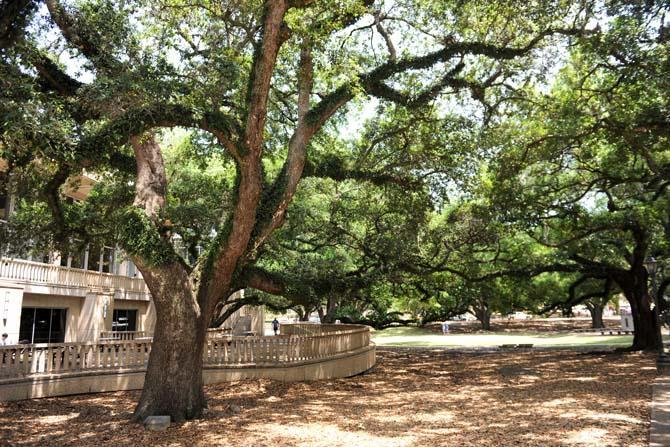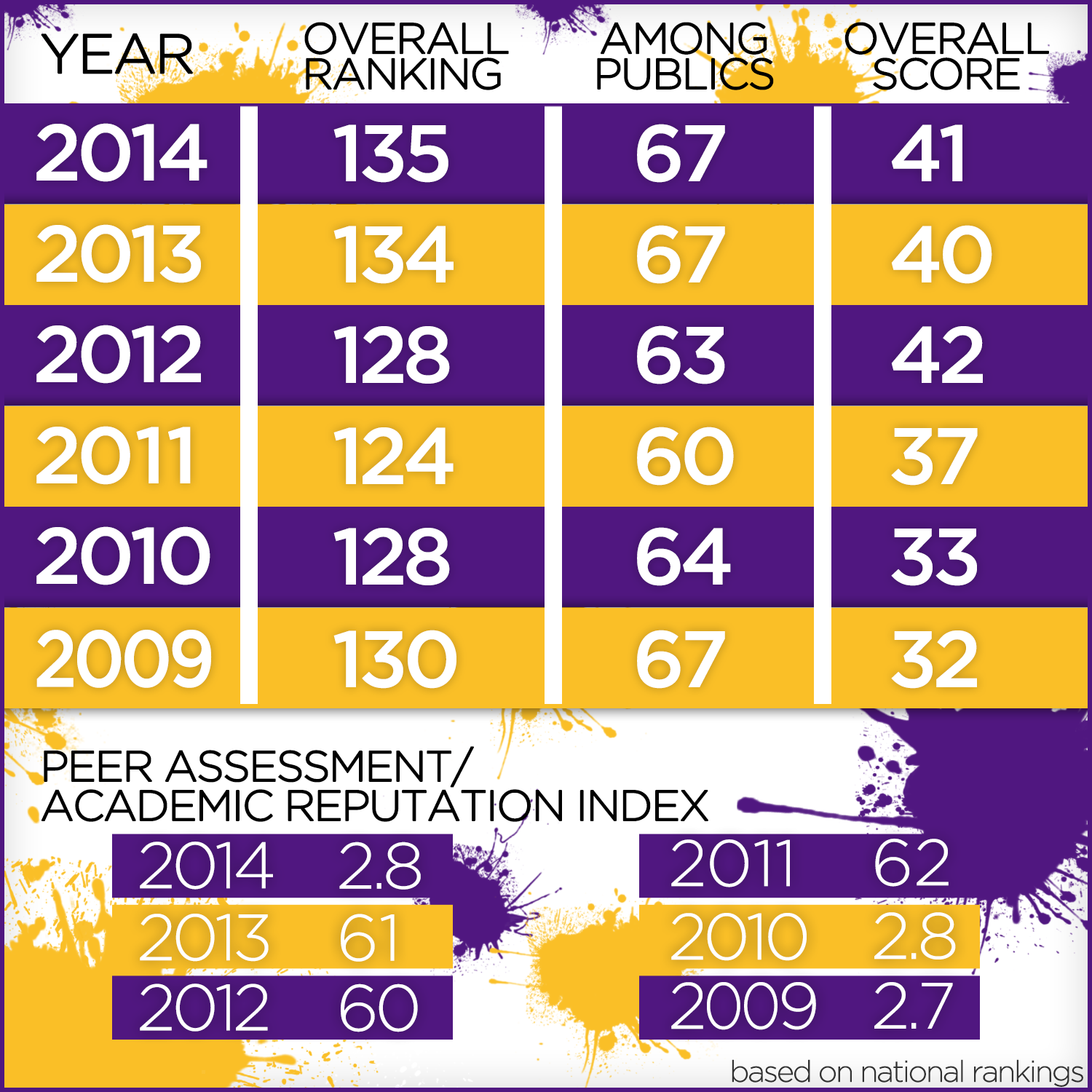LSU is No. 135 in U.S. News and World Report’s rankings of national universities released today, a drop from its position at 134th last year. In the rankings for public national universities, LSU maintained its place at 67th from last year.
While the national ranking includes all universities, public and private, the public rankings include only state-run schools.
U.S. News ranks universities based on a numerical score derived from a weighted formula that considers student retention, faculty resources and assessments from high school counselors and peer university officials, among other factors. LSU’s overall score, derived from this formula, improved by one point — to 41 from 40 last year — though its ranking among other universities went down.
While the University’s score increased — showing an improvement in the school’s performance — its position relative to other universities has dropped.
LSU was tested against other national universities, which U.S. News defines as offering a full range of undergraduate majors and graduate programs, and emphasizing faculty research.
Five universities tied with LSU in 135th place, including three other public schools: Kansas State University, Ohio University and the University of Cincinnati and two private schools, Hofstra University and New School in New York.
LSU President F. King Alexander said he does not put much emphasis on U.S. News’ rankings because he thinks the criteria it uses does not reflect all the important factors that go into choosing a university.
“They don’t look at value, they don’t look at student indebtedness,” Alexander said. “They actually rank higher the fewer students you let in.”
Alexander said he prefers the rankings offered by Money Magazine and the United States Department of Education’s College Scorecard because their rankings consider cost to students and financial responsibility, which U.S. News’ rankings do not.
Though U.S. News’ rankings account for faculty salary and educational expenditures such as research and student services, tuition and fees or student debt at graduation are not used when calculating them.
Alexander said the lack of these criteria, in a time when college education is becoming more expensive, is an oversight.
Most of the University’s statistics, used to calculate the ranking, did not change much from previous years. Though the six-year graduation rate increased steadily from 50.2 percent in 1998 to 66.7 percent last year, this year’s rate stayed about the same at 67 percent.
University holds position in U.S. News and World Report rankings
September 9, 2013
Oak trees provide dappled sunlight in Memorial Oak Grove, which was dedicated in 1926 for the memory of fallen soldiers in World War I.






